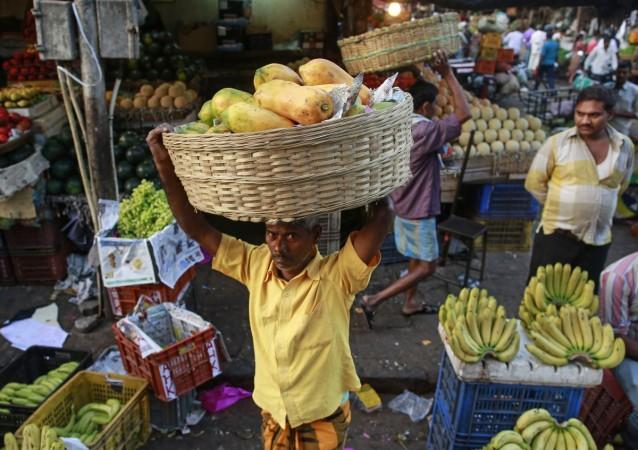
Indians may putting themselves at a higher risk of chronic diseases such as obesity, diabetes, heart disease and cancer by not consuming the daily servings of fruits and vegetables recommended by the World Health Organisation (WHO).
A report by the Indian Council for Research on International Economic Relations (ICRIER) has said Indian consumers across all income groups are consuming less than the WHO-recommended quantity of at least 400 grams (or five daily servings with an average serving size of 80 gm) of fruits and vegetables.
The ICRIER conducted the survey covering 1,001 individuals across five cities — Delhi-NCR, Mumbai, Chennai, Hyderabad and Kolkata.
India is one of the largest producers of fruits and vegetables in the world. It is also one of the largest consumer markets, with food and grocery having the largest share in the consumption basket. However, a number of studies show Indian consumers do not consume the WHO-recommended quantity of fruits and vegetables, according to the report.
WHO recommended intake versus Indian dietary habits
The WHO panel on diet, nutrition and prevention of chronic diseases recommended a daily intake of at least 400 grams of fruits and vegetables, excluding potatoes, cassava and other starchy tubers, to prevent diet-related chronic diseases and micronutrient deficiencies.
Most Indians on the other hand consume only 3.5 daily servings of fruits and vegetables, which comprises of 1.5 servings of fruits and 2 servings of vegetables, the report said. It added that the younger generation of Indians in the age group of 18 to 25 years, especially students, are consuming even lesser fruits and vegetables.
The survey added that the various reasons for low intake of fruits and vegetables among Indians may be attributed to low household-income, limited availability of fruits and vegetables combined with high taxes and prices, and regional or personal choices of individuals.
"There are variations across diet types — the average daily intake of fruits and vegetables is 3.97 servings for a person with a Jain diet, while it is 3.87 servings for a vegetarian, 3.43 servings for an eggetarian and 3.2 servings for a non-vegetarian," the report added.
The WHO said unhealthy lifestyles, including dietary habits, are one of the major factors for rising cases of non-communicable diseases (NCDs) like diabetes, obesity, coronary heart diseases and cancer.
Rising cases of chronic diseases in India
According to a Deloitte report, NCDs will make up more than 75 percent of India's disease burden by 2025, compared to 45 percent in 2010.
India, known as the diabetes capital of the world, had 46 million diabetics in 2015 compared to 38 million diabetics in 2010. The number of patients suffering from coronary heart disease increased to 62 million in 2015 from 47 million in 2010. Around 23 million patients suffered from Chronic Obstructive Pulmonary Disease — the second-leading cause of death in India — in 2015 compared to 21 million in 2010.










![BJP fields Tashi Gyalson for Ladakh; drops sitting MP [details]](https://data1.ibtimes.co.in/en/full/797185/bjp-fields-tashi-gyalson-ladakh-drops-sitting-mp-details.jpg?w=220&h=138)



